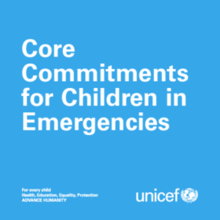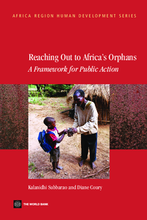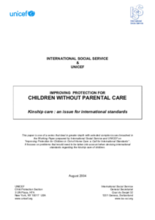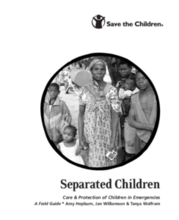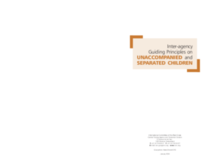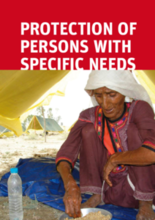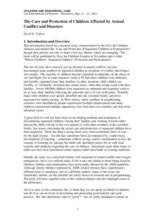Displaying 211 - 220 of 239
Outlines UNICEF’s initial and follow-up responses in protecting and caring for women and children.
A document with guidelines and the framework for a comprehensive and accurate response to the problem of displaced persons.
A paper outlining the use of formal and informal kinship care, child headed households and cross border kinship care. It discusses the advantages and limitations of each, including welfare costs, and argues for international standard setting.
A detailed book providing evidence-based guidelines for approaches and interventions to best mitigate the various risks confronted by OVC.
Outlines problems and issues in providing appropriate out-of-home care solutions. Advocates for development of more comprehensive international standards for out-of-home care.
This paper outlines some of the key issues facing separated children, which include physical, protective, psychosocial and guardianship needs. It describes program interventions to prevent separation, to trace and reunify families, to plan interim and long-term care arrangements for separated children.
Provides guidance on role of humanitarian agencies in ensuring protection and appropriate care provision for separated and unaccompanied childre, with a particular emphasis on preserving family unity and ensuring identification, tracing and reunification is pursued.
Core interagency resource on the principles of practice with separated and unaccompanied children. Includes prevention of separation, evacuation procedures, and tracing, reunification, and care arrangements.
A guide for camp management agencies that provides instruction on the care and protection of all children (under 18), as well as those with specific needs, such as unaccompanied and separated children, child heads of households, children formerly associated with armed forces, and out-of-school and unemployed adolescents and youth.
Overview of a research study which provides guidelines for care of separated children in large-scale emergencies, focusing on the negative impact of residential care, extended family care, spontaneous and agency fostering, adoption, and alternative placements for adolescents.

